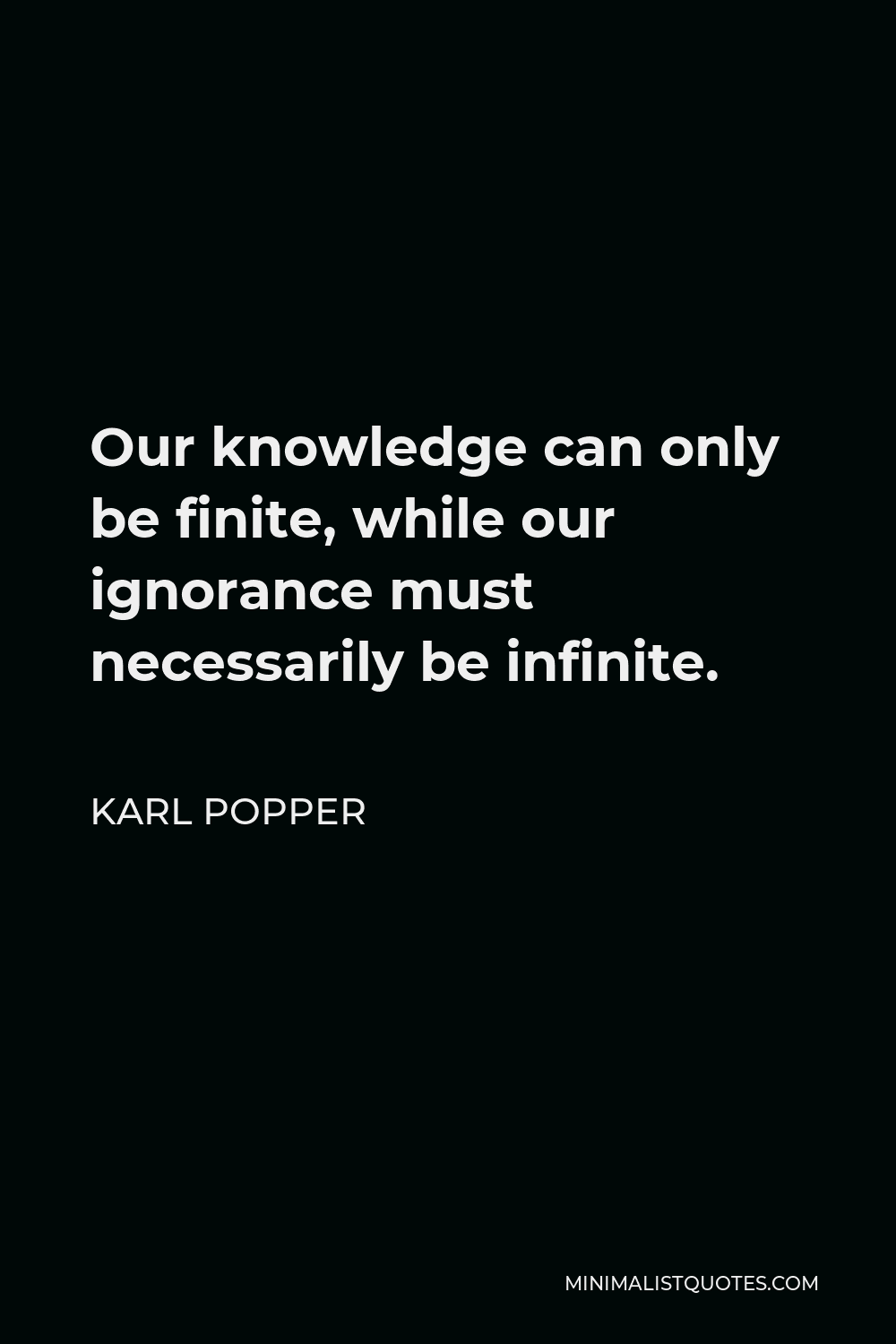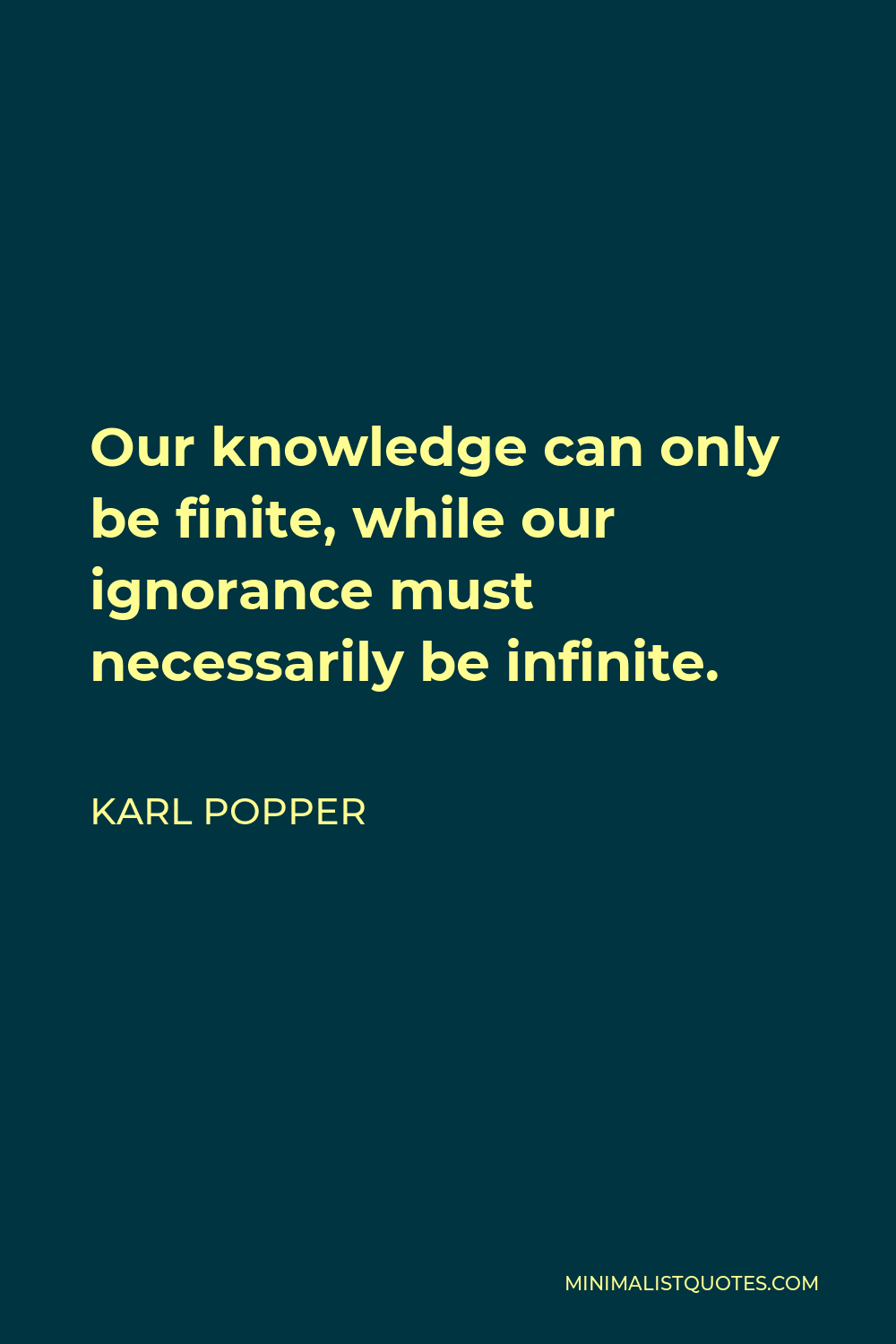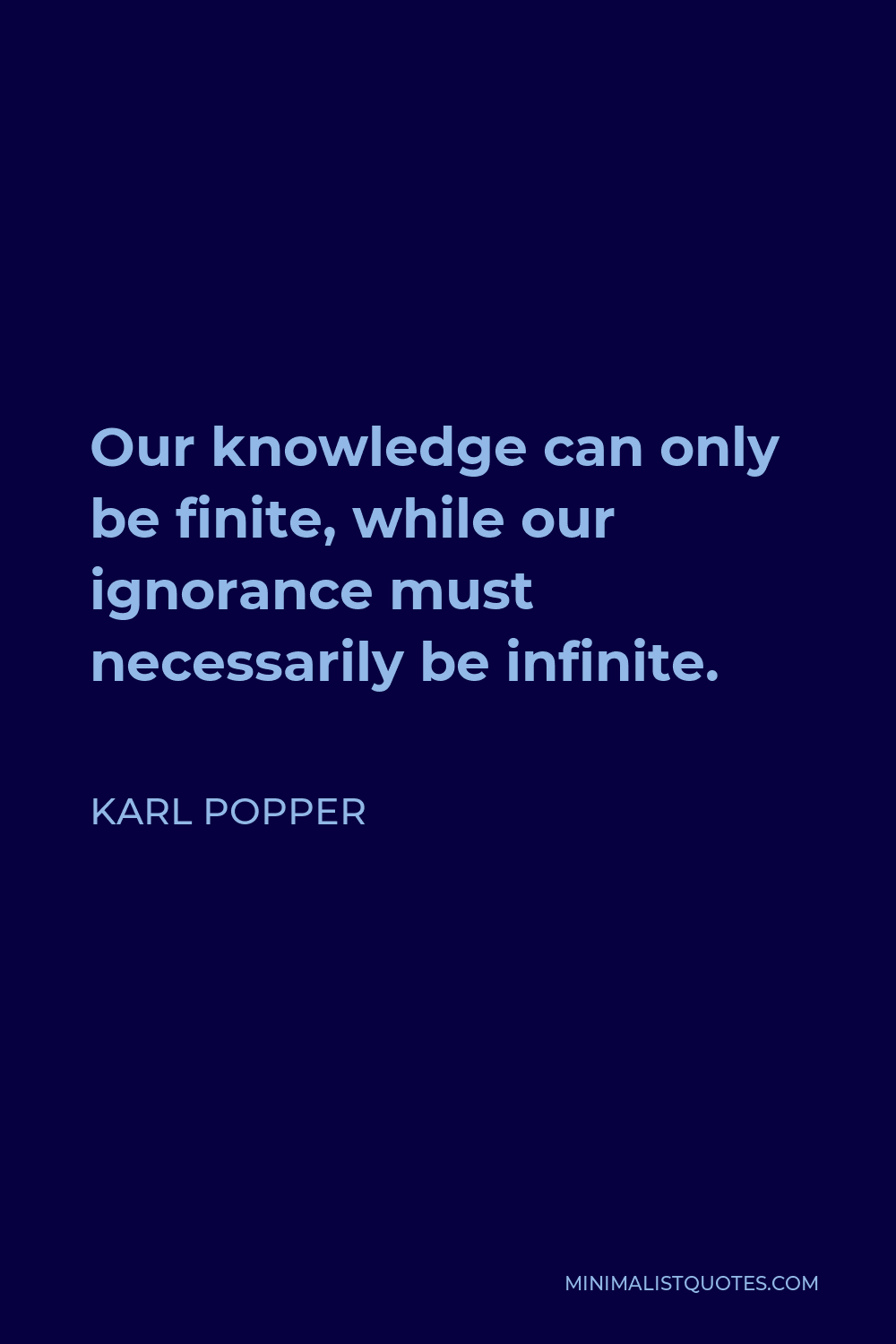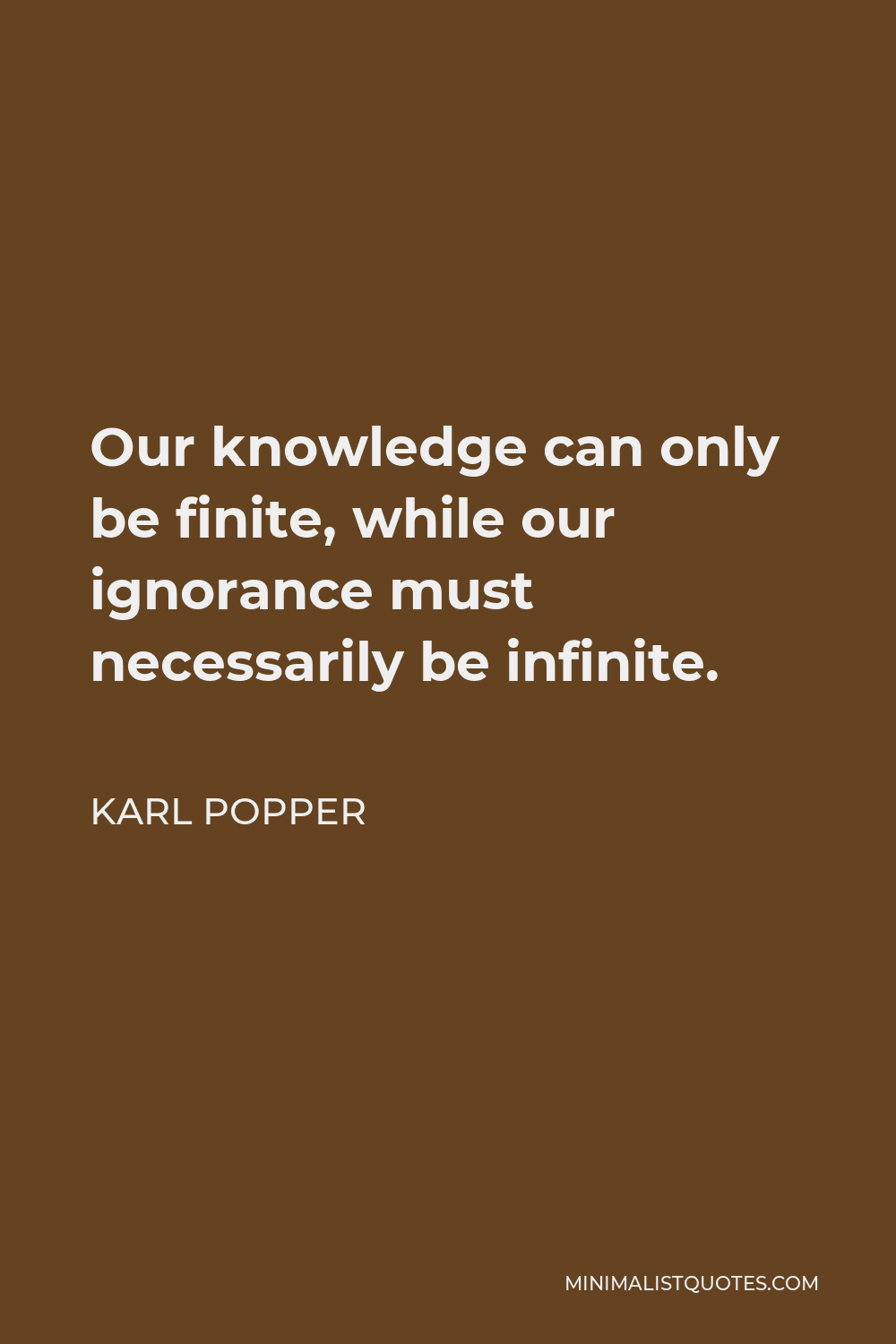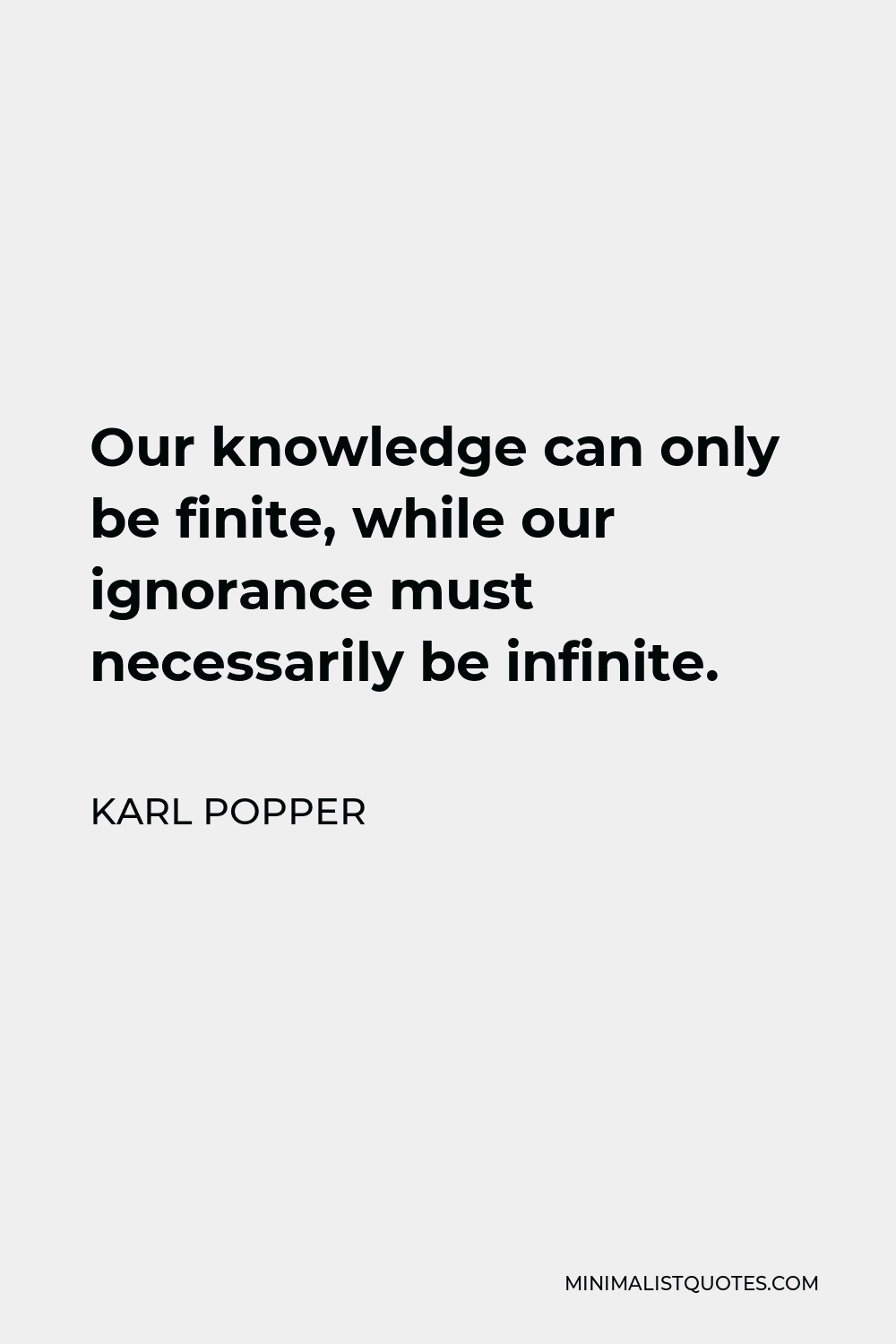Great men may make great mistakes.
KARL POPPEROur knowledge can only be finite, while our ignorance must necessarily be infinite.
More Karl Popper Quotes
-





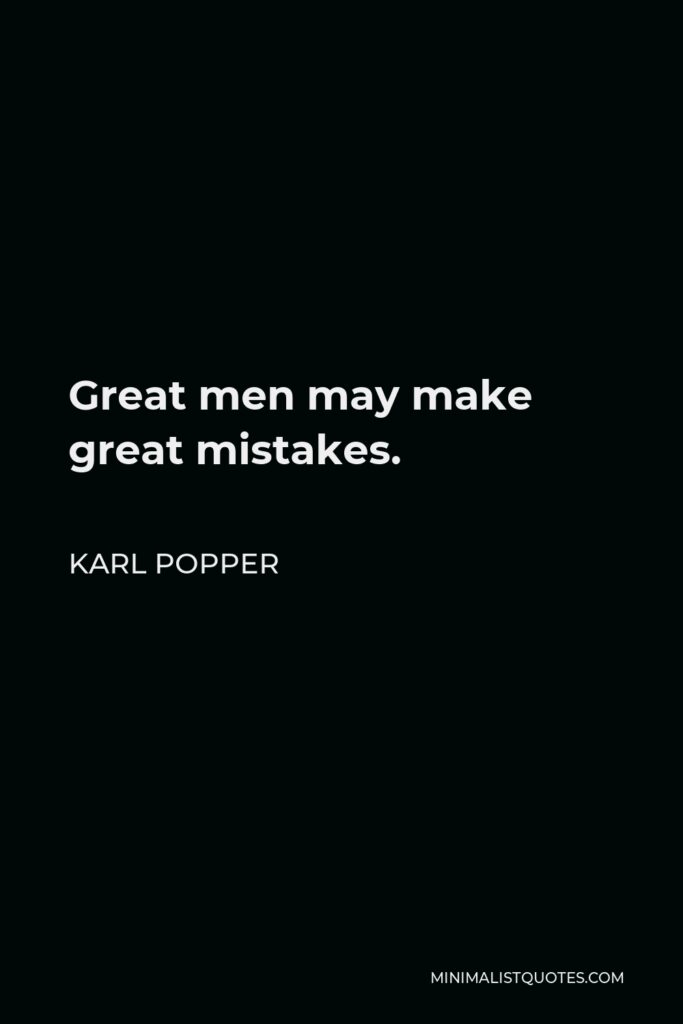

-





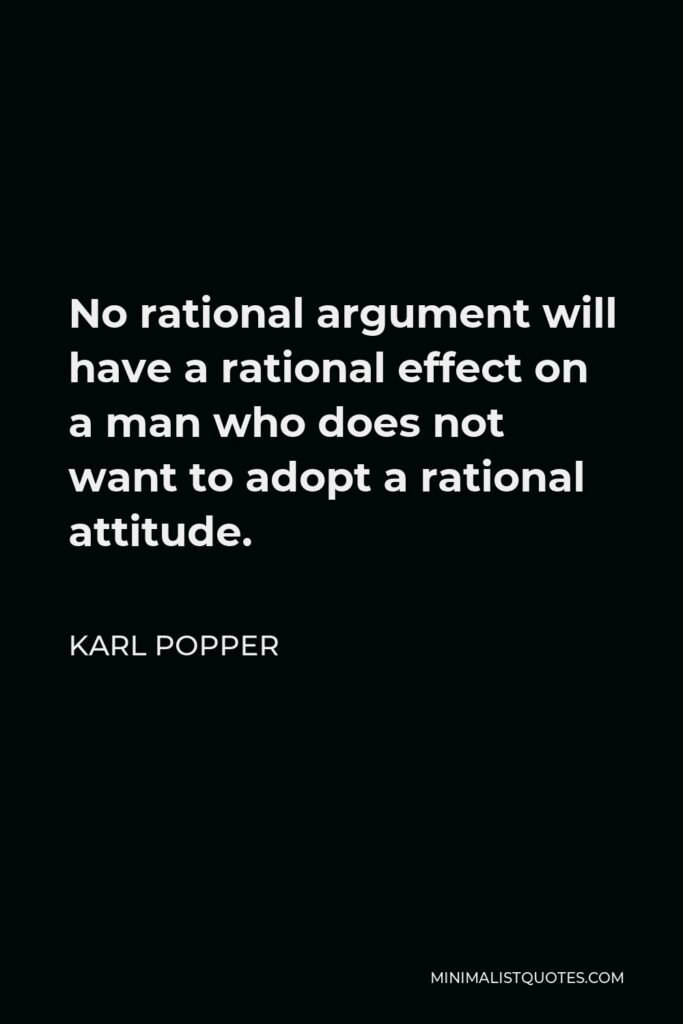

No rational argument will have a rational effect on a man who does not want to adopt a rational attitude.
KARL POPPER -





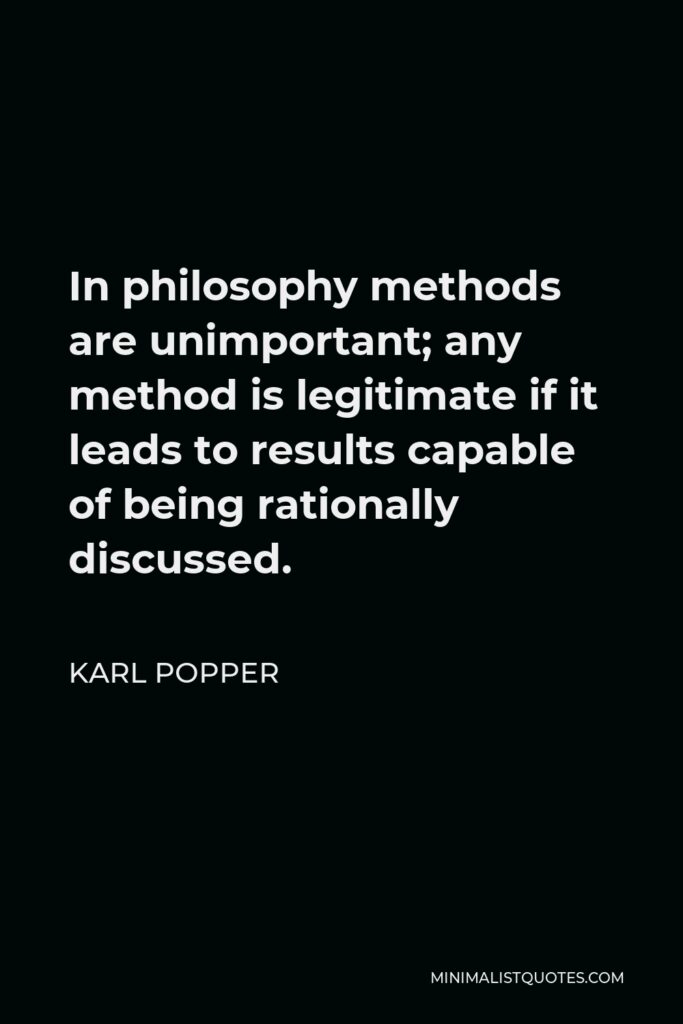

In philosophy methods are unimportant; any method is legitimate if it leads to results capable of being rationally discussed.
KARL POPPER -





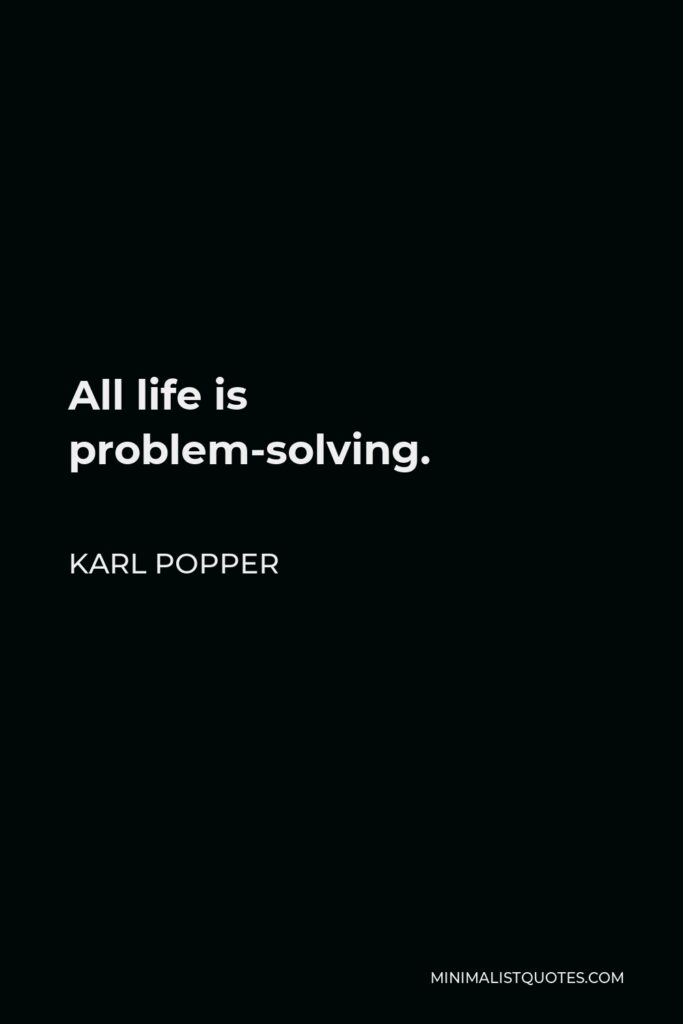

All life is problem-solving.
KARL POPPER -





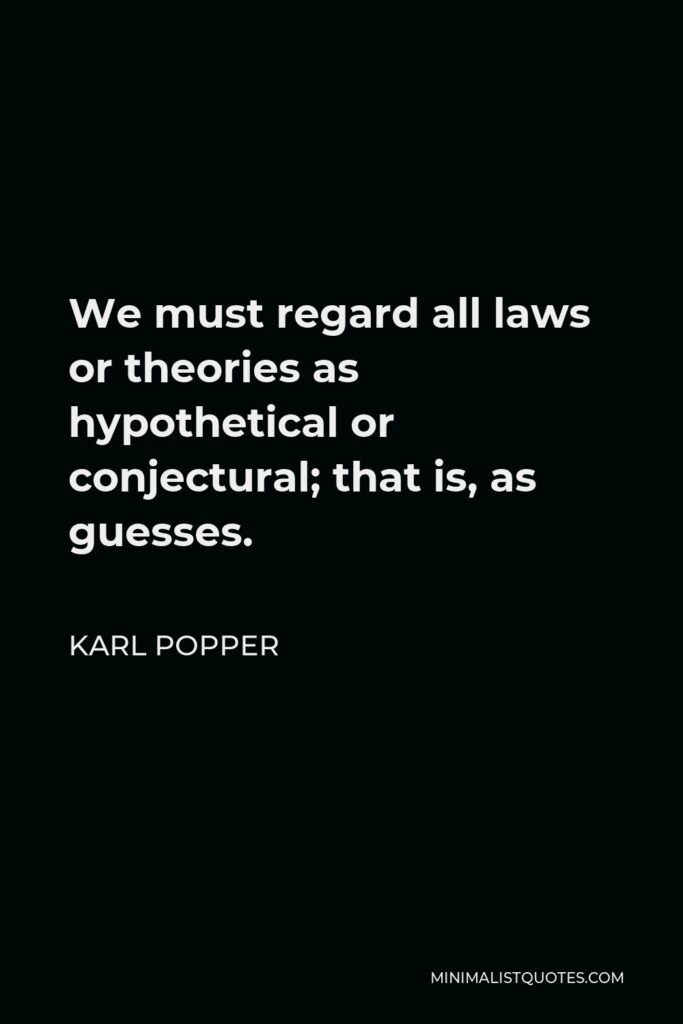

We must regard all laws or theories as hypothetical or conjectural; that is, as guesses.
KARL POPPER -





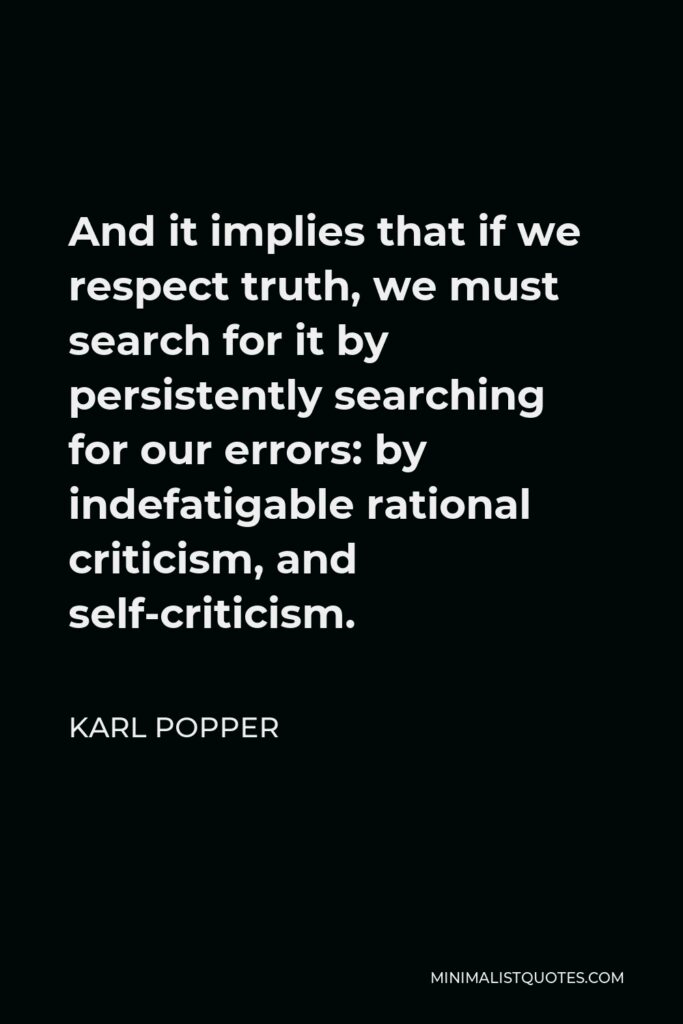

And it implies that if we respect truth, we must search for it by persistently searching for our errors: by indefatigable rational criticism, and self-criticism.
KARL POPPER -





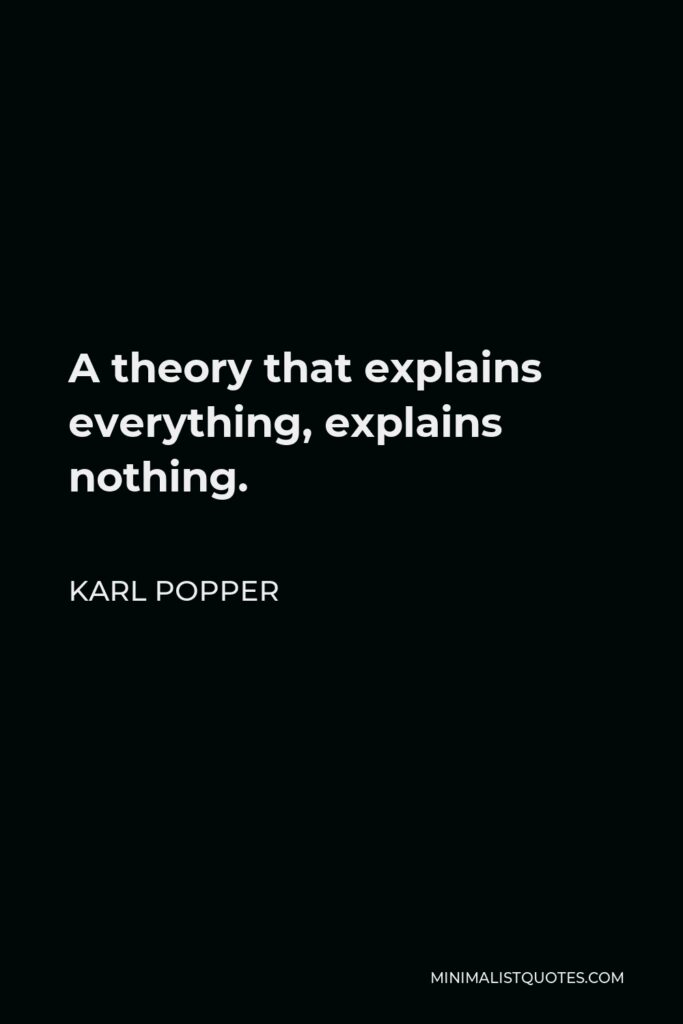

A theory that explains everything, explains nothing.
KARL POPPER -





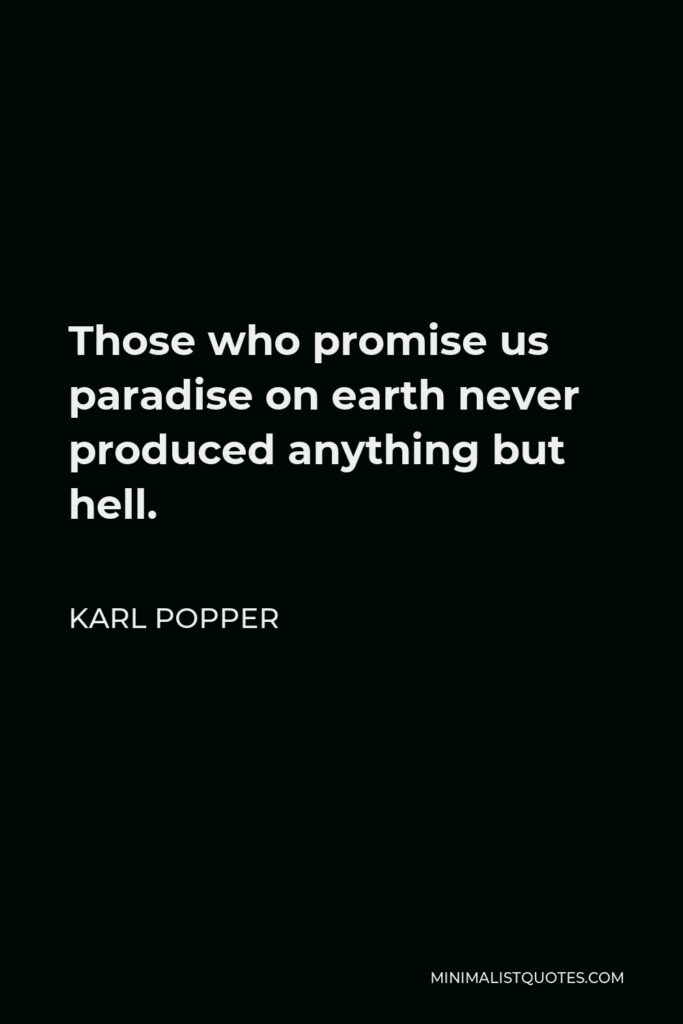

Those who promise us paradise on earth never produced anything but hell.
KARL POPPER -





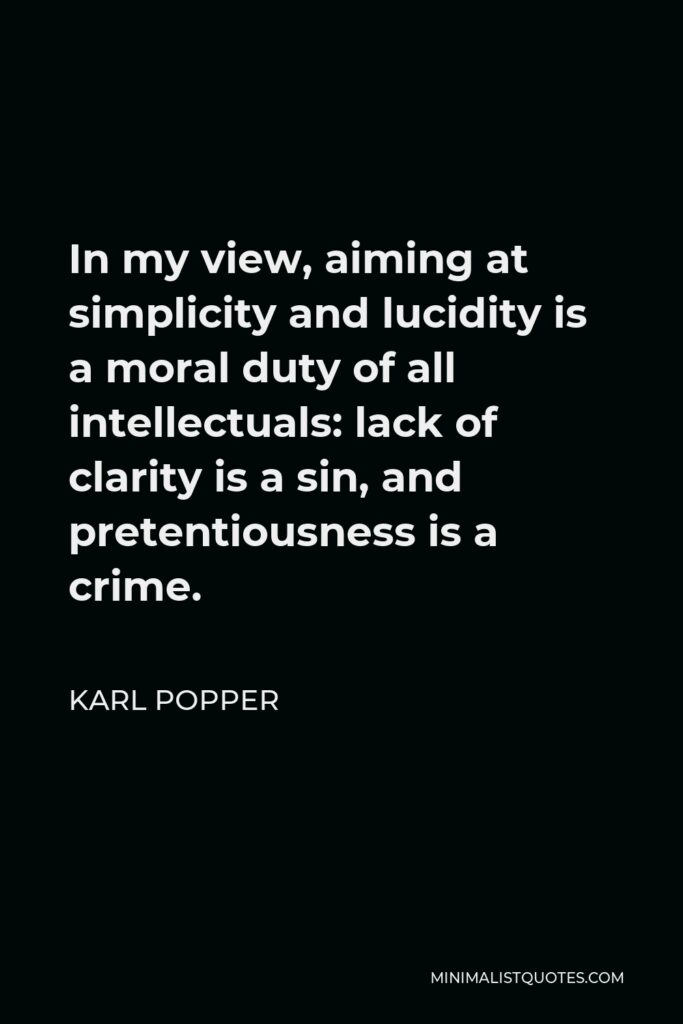

In my view, aiming at simplicity and lucidity is a moral duty of all intellectuals: lack of clarity is a sin, and pretentiousness is a crime.
KARL POPPER -





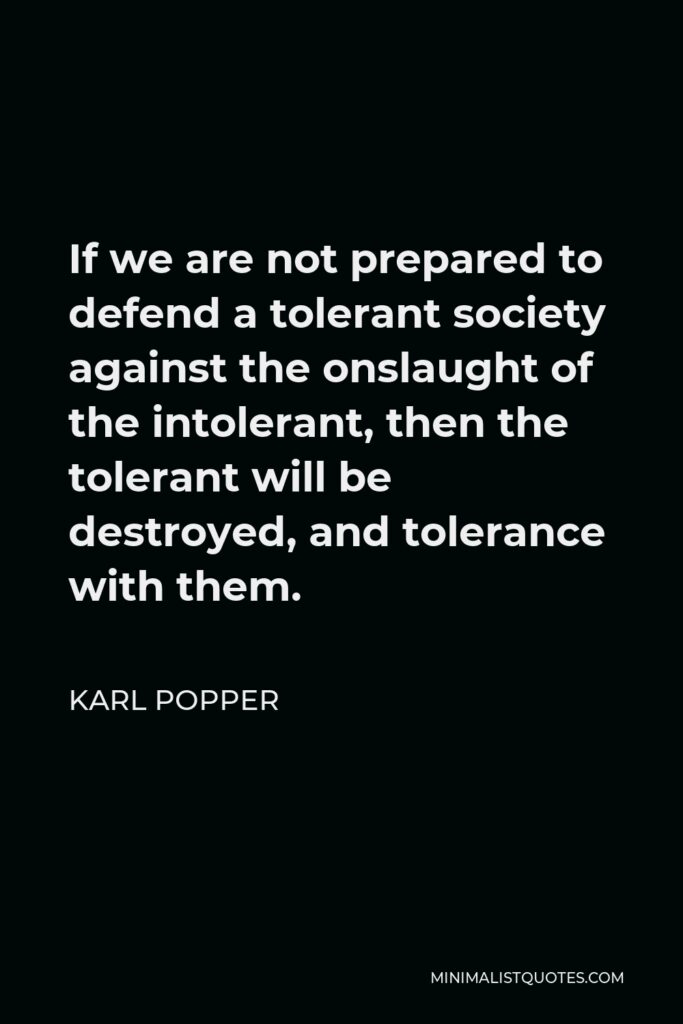

If we are not prepared to defend a tolerant society against the onslaught of the intolerant, then the tolerant will be destroyed, and tolerance with them.
KARL POPPER -





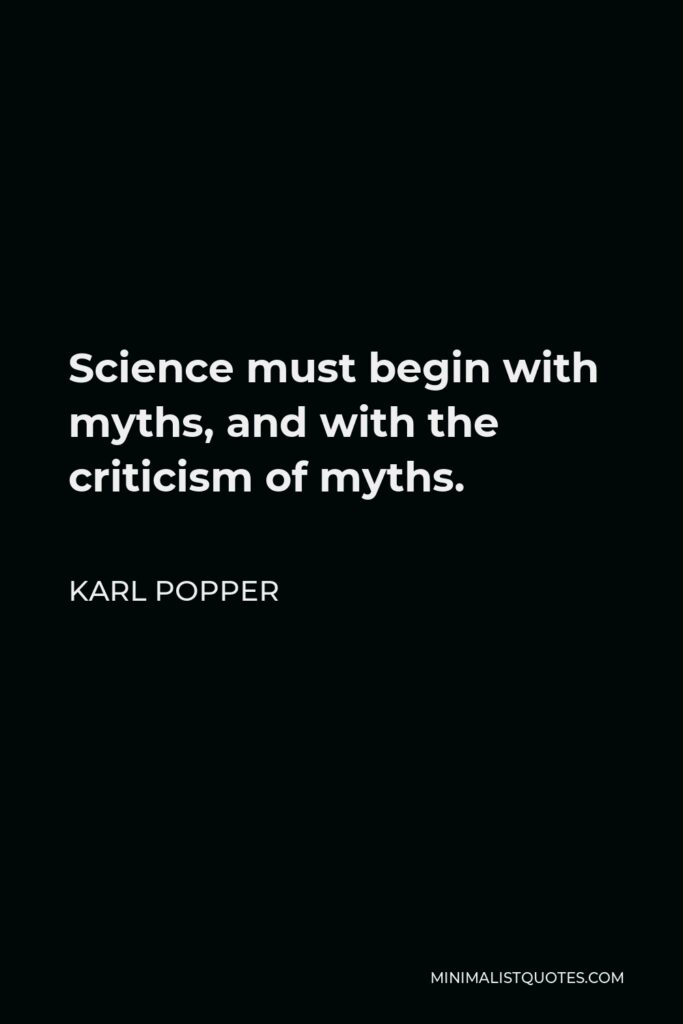

Science must begin with myths, and with the criticism of myths.
KARL POPPER -





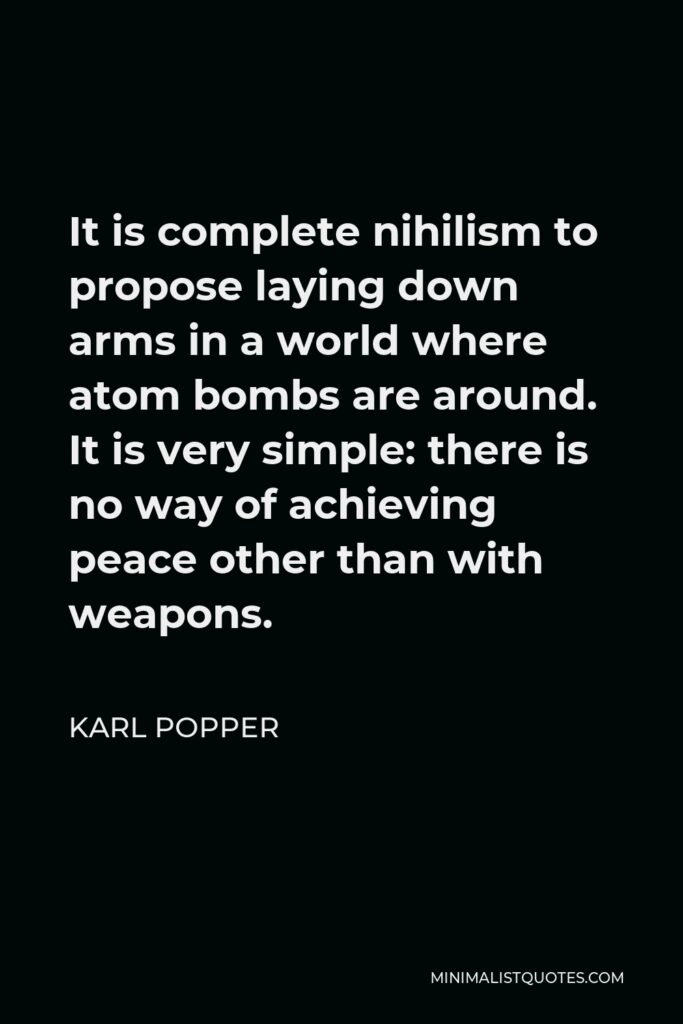

It is complete nihilism to propose laying down arms in a world where atom bombs are around. It is very simple: there is no way of achieving peace other than with weapons.
KARL POPPER -





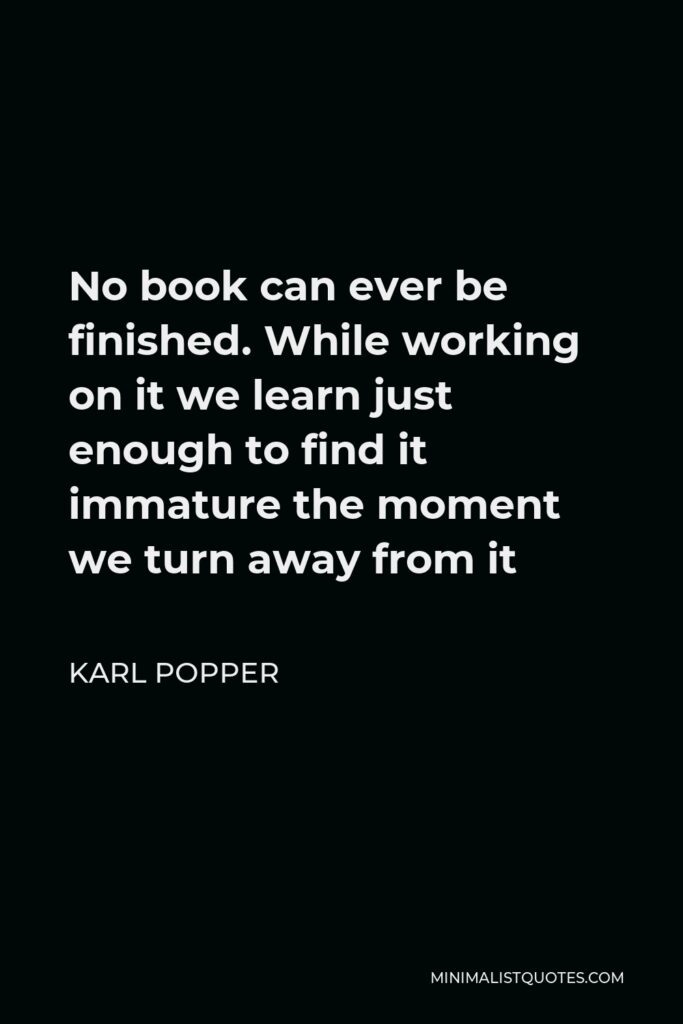

No book can ever be finished. While working on it we learn just enough to find it immature the moment we turn away from it
KARL POPPER -





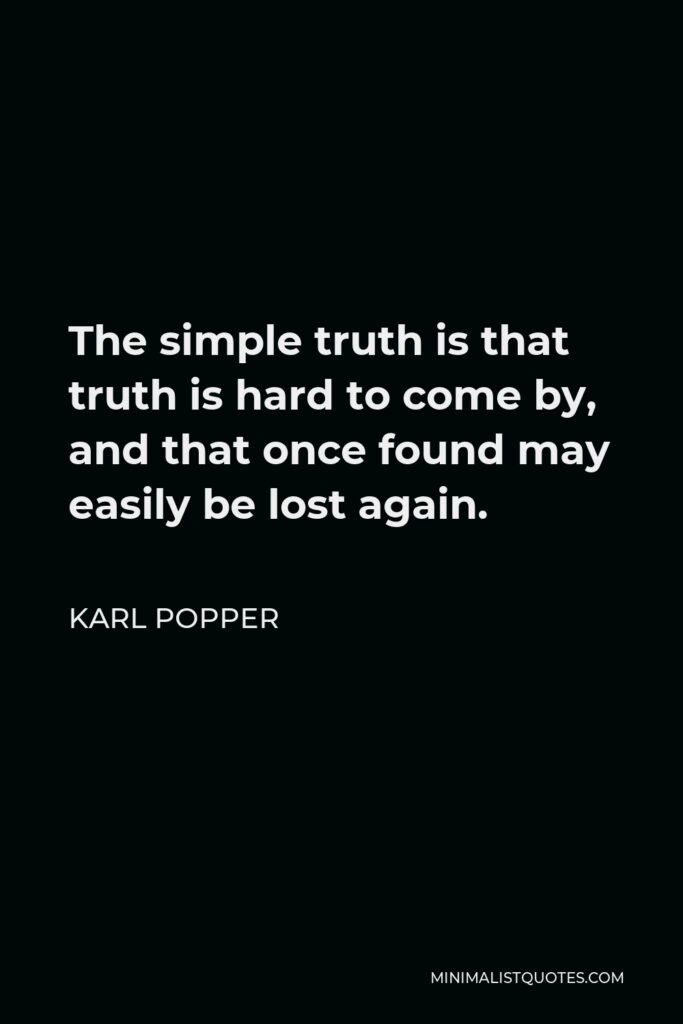

The simple truth is that truth is hard to come by, and that once found may easily be lost again.
KARL POPPER -





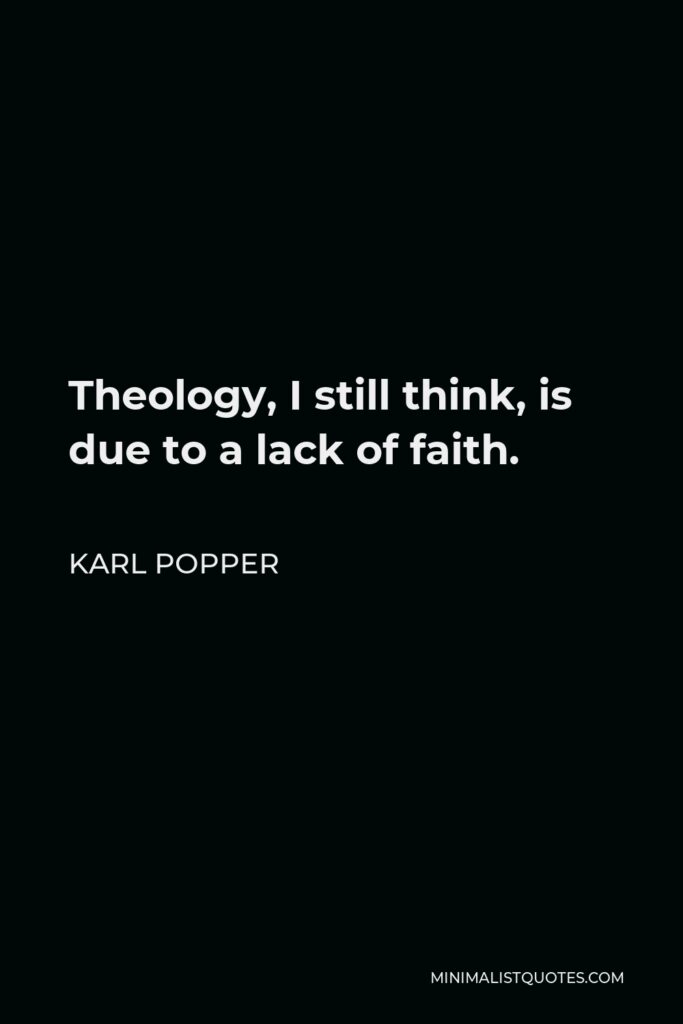

Theology, I still think, is due to a lack of faith.
KARL POPPER -





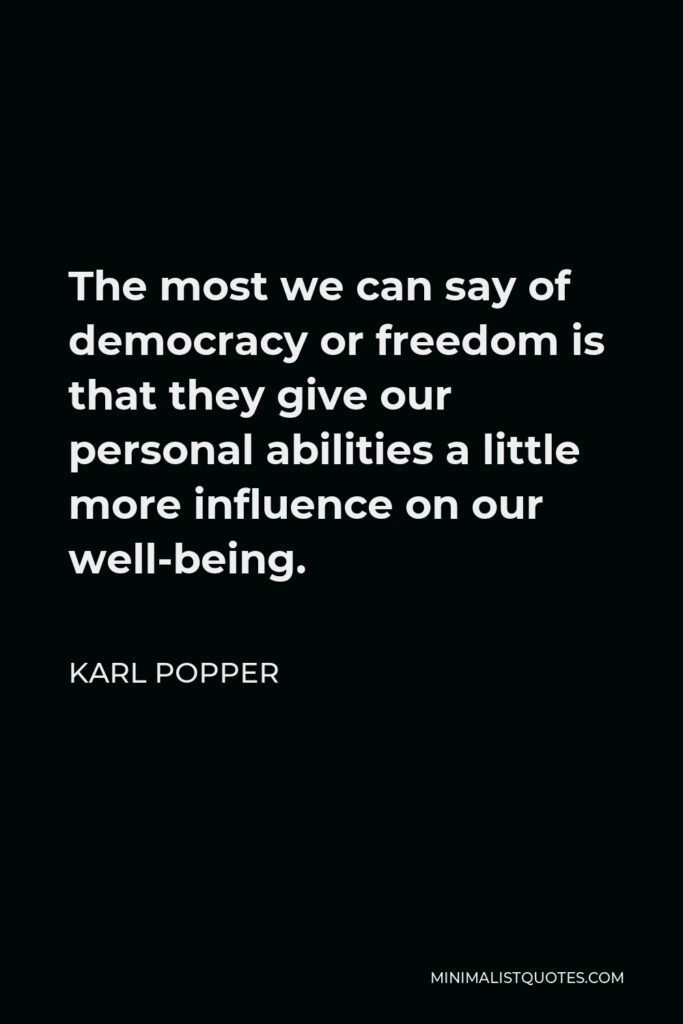

The most we can say of democracy or freedom is that they give our personal abilities a little more influence on our well-being.
KARL POPPER
